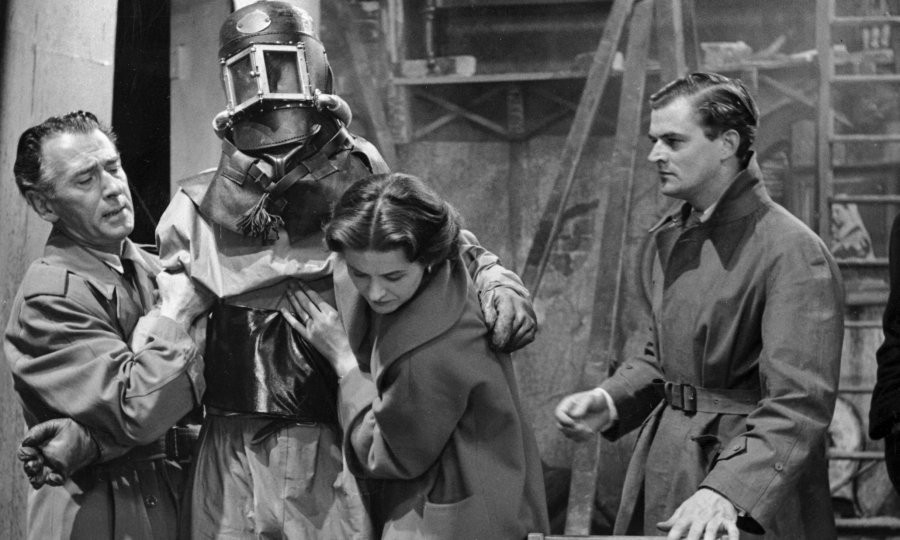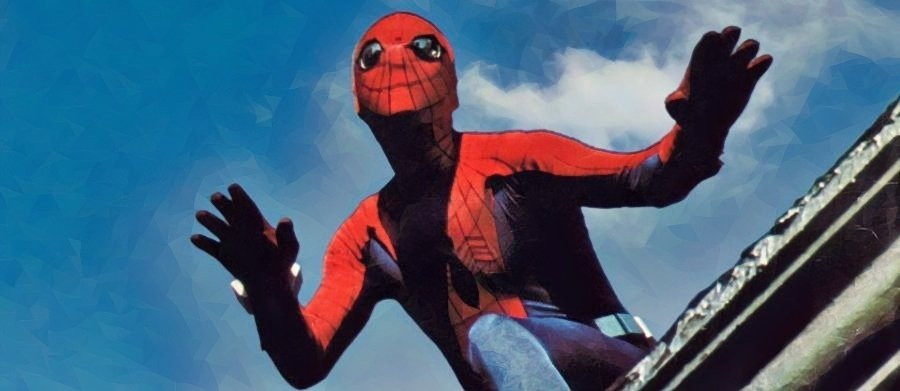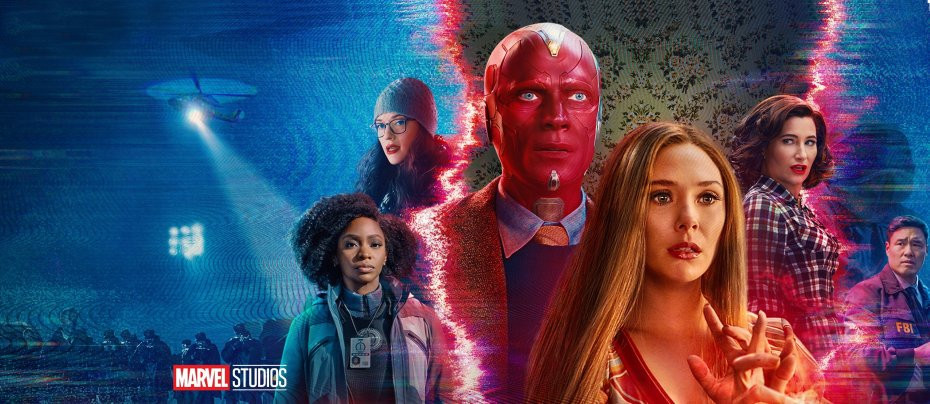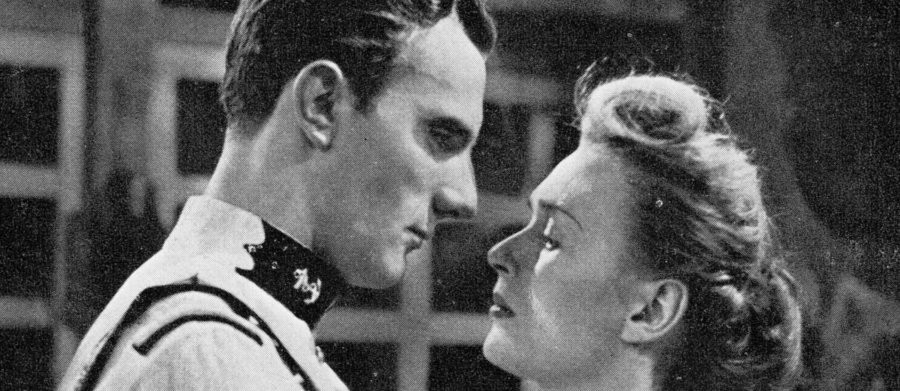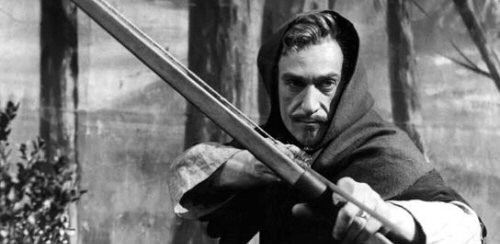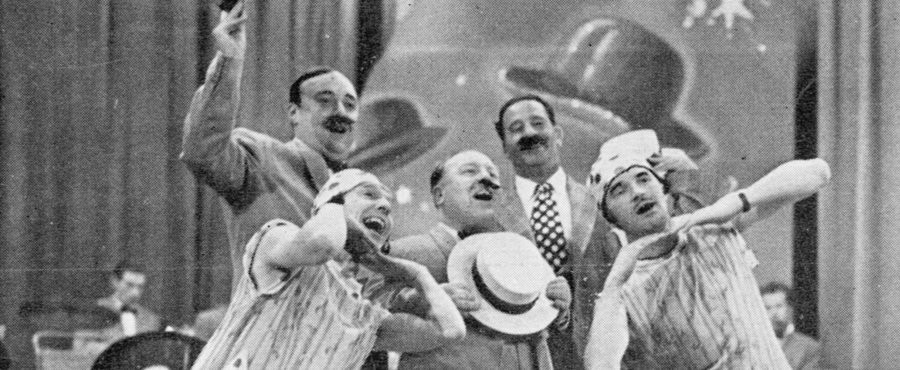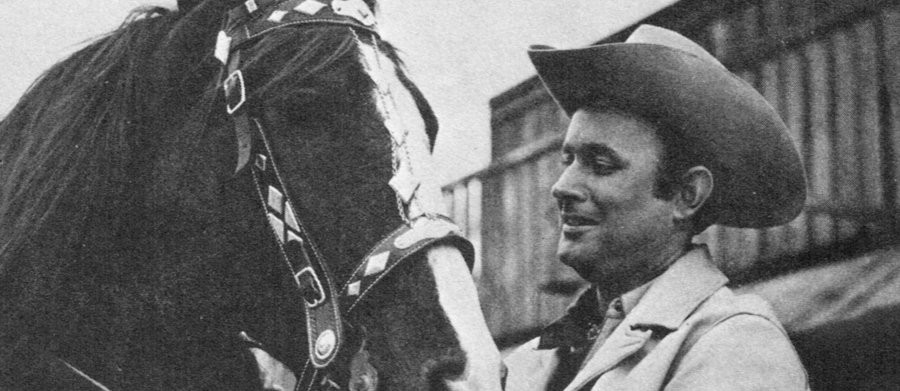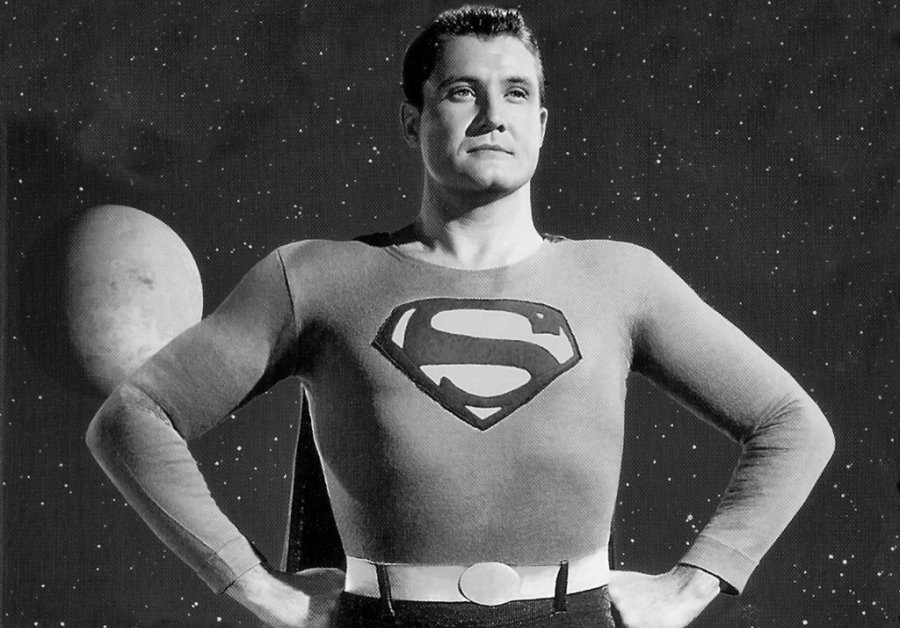
The Adventures of Superman
1953 - United StatesCreated by artist Joe Shuster and writer Jerome (Jerry) Siegel for Action Comics in 1938 Superman was a depression-era fantasy about the sole survivor of the doomed planet Krypton who is rocketed to Earth as an infant by his father, the brilliant scientist Jor-El (made up from the letters of Siegel’s own name), and who under the rays of Earth's yellow sun (Krypton's was red), is endowed with super strength, x-ray vision, and the ability to fly as well as possessing a whole fund of other useful talents.
The series was by no means Superman's first outing on screen as he appeared in movie theatres as far back as 1941 when 'Popeye' animator Dave Fleischer produced 17 Technicolor cartoons. This was followed by some low-budget serials starring Kirk Alyn as the infamous 'man of steel', but it wasn't until 1951 that an actor called George Reeves who had made his acting debut in the classic movie Gone With The Wind, played the role in a feature called Superman and the Mole Men.
Two years later, Superman made the successful move to late afternoon television with both Reeves and Phyllis Coates recreating their roles of Superman and his girlfriend Lois Lane, respectively. The first show, Superman on Earth, tells the story of how Jor-El sends his son Kal-El to Earth in a rocket just moments before their home planet Krypton is destroyed. The rocket lands on Earth in a town called Smallville where it is discovered by the childless couple Jonathan and Martha Kent, who adopt the infant passenger and name him Clark. It is clear from the start that this is no ordinary child as he begins to display signs of super-strength and an x-ray vision that allows him to see through any object (except lead) and is virtually indestructible, save from the rays emitted by the rock Kryptonite, small fragments of meteors created when Krypton blew up.
As an adult, Clark Kent becomes a reporter for the Metropolis based newspaper The Daily Planet, where he disguises his alter-ego by portraying a clumsy, sometimes oafish, mild-mannered individual who is so good at disguising his true identity that it earns him the contempt of fellow reporter Lois Lane. Being a reporter Clark is always at the centre of major news stories, which also allows him to quietly slip away when required and don his crime-fighting Superman costume and appear just in time to save the day. And indeed, much of the phenomenally successful first season played out crime dramas and pulled little in the way of punches as producer Bob Maxwell (who had produced the Superman radio series), aimed the series at a mainly adult audience. However, pressure from the shows sponsor, Kellogg, and copyright owners National Comics was brought to bear and changes were made for season two.
Out went producer Maxwell and in came Whitney Ellsworth and out went the abrasive no-nonsense Coates as Lois Lane and in came the more laid back and less feisty Noel Neill as...Lois Lane. The tone of the whole series was tilted more towards teatime entertainment for kids and series two proved an even bigger audience hit and certainly kept the sponsors happy as it sold more breakfast cereal! But by season three (shot for the first time in colour) with the star of the series beginning to show his age, it was also felt as though Ellsworth's scripts were becoming increasingly childish and simplistic and the show began to lose its appeal.
Each instalment was shot at a rapid rate and four episodes were turned out every ten days at a cost of $15,000 each. There was little in the way of science fiction in those days, the storylines contented themselves with local villains, crime bosses and melodrama. As an example, the first season featured plotlines that involved cub reporter Jimmy ("golleee, Mr Kent") Olsen trying to save Lois who is being held at a hotel by a group of gangsters, Superman saving Lois who is trapped in a goldmine, Jimmy and newspaper chief Perry ("Don't call me chief") White being terrorized by an insane trio at a remote hotel and Clark's life being threatened when he goes to Hollywood to make a crime exposé movie.
Special effects were also kept to a minimum and Superman flying over the city of Metropolis was achieved by Reeves lying flat on a glass table that was invisible to the camera with his arms outstretched in front and the sequence 'matted' over an aerial shot of a disguised Hollywood. A mechanism was devised to make him appear to 'leap tall buildings in a single bound' but the arrangement of harnesses and pulleys were extremely uncomfortable for Reeves (even over all the padding from the suit that was made to make him appear more muscular) and considered somewhat risky to his safety. The illusion of him jumping out of a window to fly was simply achieved by the actor jumping onto a springboard, vaulting through the window and landing on an out-of-shot mattress on the other side.
The series was finally cancelled in 1957, although with reruns it appeared to go on forever. Unfortunately it was that perception that ruined the career of George Reeves. He became so synonymous with the role that no one wanted to hire him for any other. On 16 June 1959 the actor put a gun to his head and pulled the trigger. Even in death he was unable to escape typecasting with one newspaper headlining his suicide as 'Superman Kills Self.'
Superman has reappeared on the big and small screen since the 1950s and continues to be a great source of delight to fans around the world. Christopher Reeves (no relation to George) recreated the role for moviegoers in 1978 in an Academy Award nominated feature, but this Reeves also met a tragic end after falling from a horse and breaking his neck leaving him completely paralysed. His fight back to health stood as an inspiration to thousands of people around the world although he died at a tragically young age in 2004. Later incarnations of Krypton's favourite son include Dean Cain in Lois and Clark and Tom Welling in Smallville, a series set round Clark Kent's formative years as he struggles to come to terms with his powers whilst realising that he will never have the normal life he yearns for. And with big-budget features seemingly constantly in production it seems that Superman will continue to be 'Up, up and away' for generations to come.
Seen this show? How do you rate it?
Seen this show? How do you rate it?
Published on November 26th, 2018. Written by Laurence Marcus 17 January 2005 for Television Heaven.


